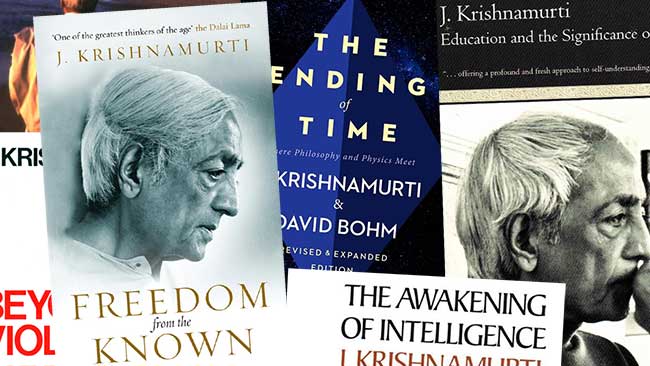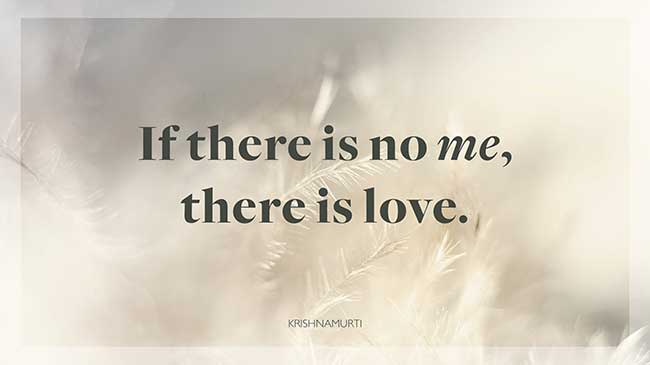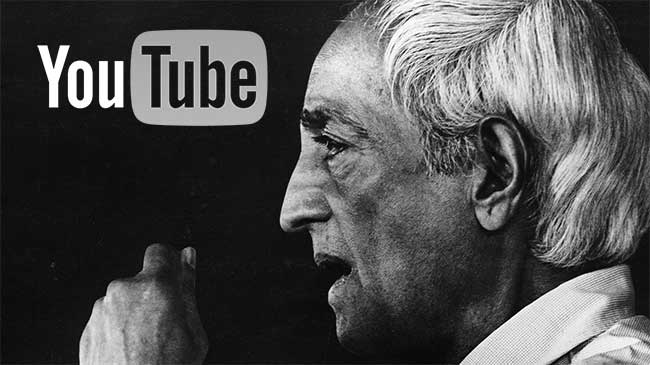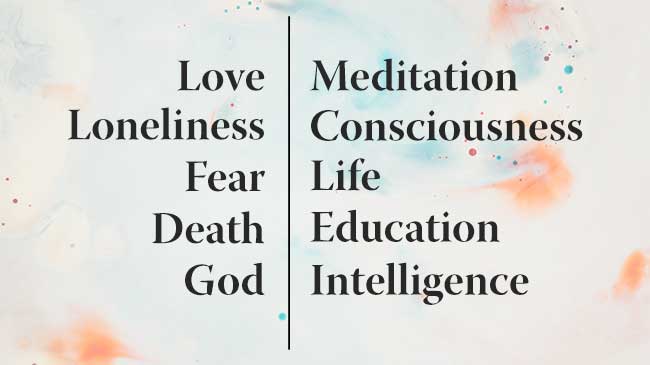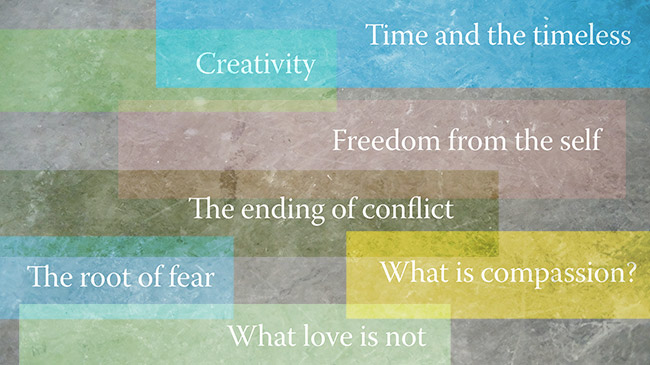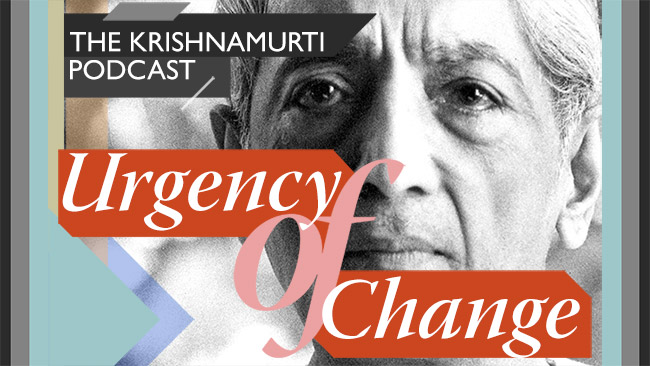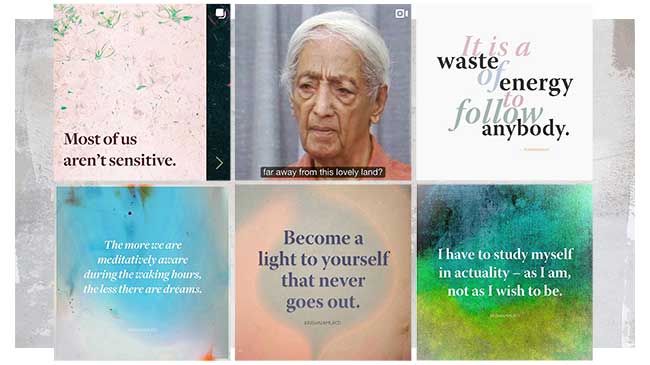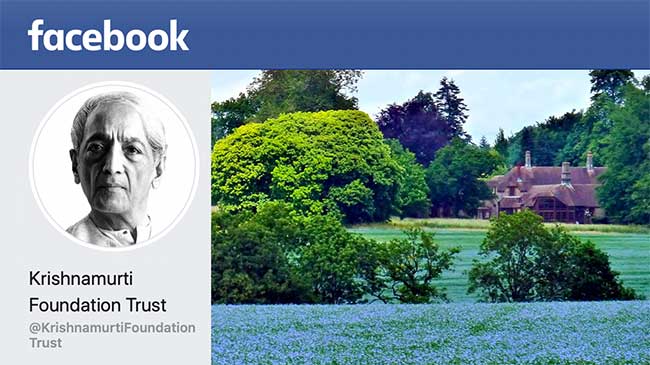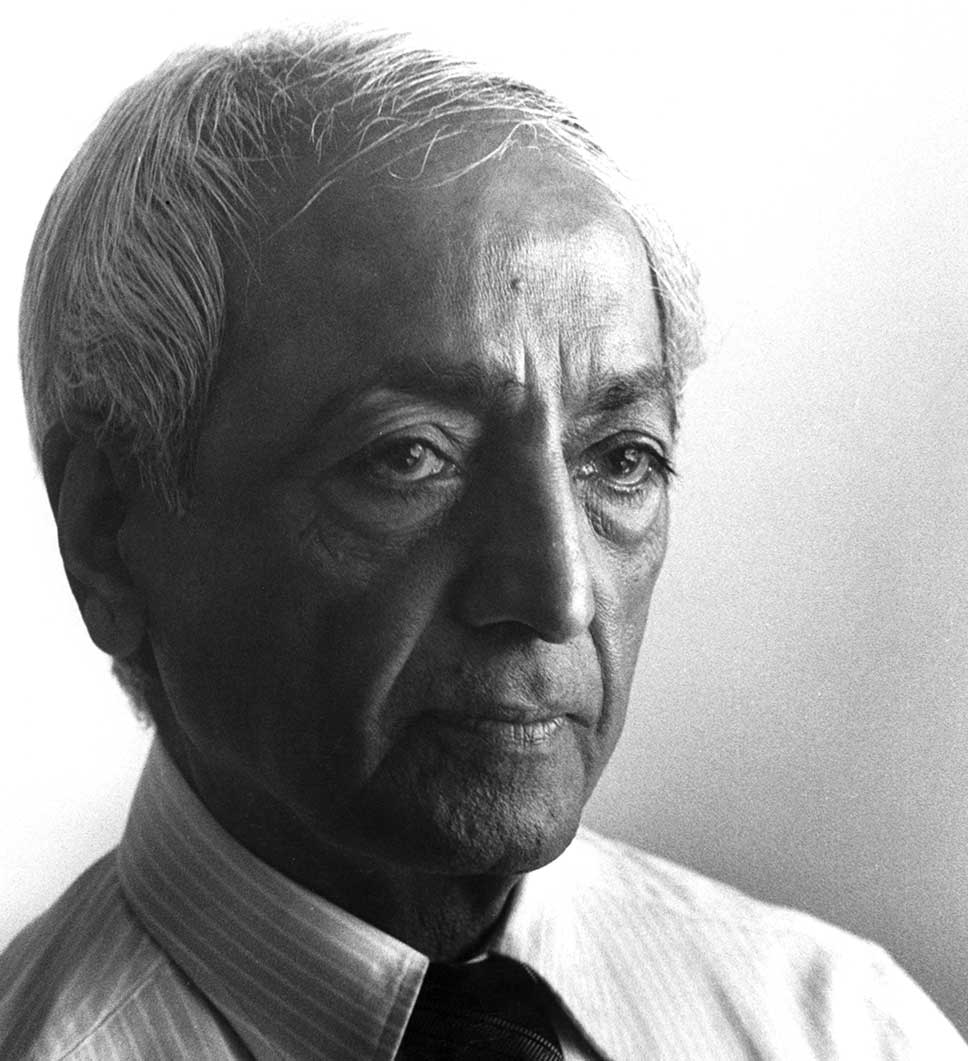
Who was Krishnamurti?
I am nobody. It is as simple as that. I am nobody. But what is important is who you are, what you are.
KRISHNAMURTI
J. Krishnamurti (1895-1986) is widely regarded as one of the greatest thinkers and religious teachers of all time. He spoke throughout the world to large audiences and to individuals, including writers, scientists, philosophers and educators, about the need for a radical change in mankind. Asked to describe what lay at the heart of his teaching, he said:
Truth is a pathless land. Man cannot come to it through any organisation, through any creed, through any dogma, priest or ritual, nor through any philosophic knowledge or psychological technique. He has to find it through the mirror of relationship, through the understanding of the contents of his own mind, through observation and not through intellectual analysis or introspective dissection.
Krishnamurti was concerned with all humanity and stated repeatedly that he held no nationality or belief and belonged to no particular group or culture. In the latter part of his life, he travelled mainly between the schools he had founded in India, Britain and the United States, which educate for the total understanding of man and the art of living. He stressed that only this profound understanding can create a new generation that will live in peace.
Timeless Quality. Freedom to Inquire.
I am nobody. It is as simple as that. I am nobody. But what is important is who you are, what you are.
KRISHNAMURTI
J. Krishnamurti (1895-1986) is widely regarded as one of the greatest thinkers and religious teachers of all time. He spoke throughout the world to large audiences and to individuals, including writers, scientists, philosophers and educators, about the need for a radical change in mankind. Asked to describe what lay at the heart of his teaching, he said:
Truth is a pathless land. Man cannot come to it through any organisation, through any creed, through any dogma, priest or ritual, nor through any philosophic knowledge or psychological technique. He has to find it through the mirror of relationship, through the understanding of the contents of his own mind, through observation and not through intellectual analysis or introspective dissection.
Krishnamurti was concerned with all humanity and stated repeatedly that he held no nationality or belief and belonged to no particular group or culture. In the latter part of his life, he travelled mainly between the schools he had founded in India, Britain and the United States, which educate for the total understanding of man and the art of living. He stressed that only this profound understanding can create a new generation that will live in peace.
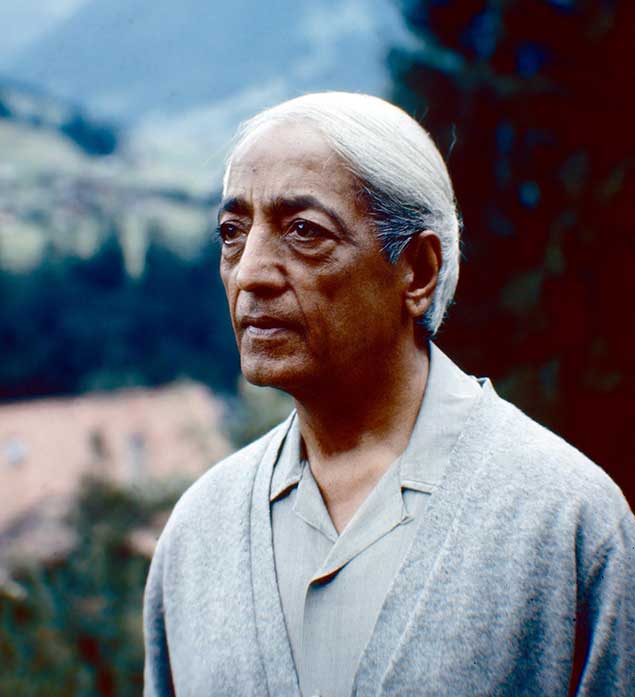
Krishnamurti reminded his listeners again and again that we are all human beings first and not Hindus, Muslims or Christians, that we are like the rest of humanity and are not different from one another. He asked that we tread lightly on this earth without destroying ourselves or the environment. He communicated to his listeners a deep sense of respect for nature. His teachings transcend man-made belief systems, nationalistic sentiment and sectarianism. At the same time, they give new meaning and direction to mankind’s search for truth. His teaching, besides being relevant to the modern age, is timeless and universal.
He spoke not as a guru but as a friend. His talks and discussions are based not on tradition-based knowledge but on his own insights into the human mind and his vision of the sacred, so he always communicated a sense of freshness and directness, although the essence of his message remained unchanged over the years. When Krishnamurti addressed large audiences, people felt that he was talking to each of them personally, addressing his or her particular problem. In his private interviews, he was a compassionate teacher, listening attentively to the man or woman who came to him in sorrow, and encouraging them to heal themselves through their own understanding. Religious scholars found that his words threw new light on traditional concepts. Krishnamurti took on the challenge of modern scientists and psychologists and went with them step by step, discussing their theories and sometimes enabling them to discern the limitations of those theories.
Krishnamurti left a large body of literature in the form of public talks, writings, discussions with teachers and students, scientists, psychologists and religious figures, conversations with individuals, television and radio interviews, and letters. Many of these have been published as books, in over 50 languages, along with hundreds of audio and video recordings.
READ – The Core of the Teachings
The core of Krishnamurti’s teaching is contained in the statement he made in 1929 when he said, ‘Truth is a pathless land. Man cannot come to it through any organisation, through any creed, through any dogma, priest or ritual, not through any philosophical knowledge or psychological technique. He has to find it through the mirror of relationship, through the understanding of the contents of his own mind, through observation and not through intellectual analysis or introspective dissection.’
Man has built in himself images as a fence of security – religious, political, personal. These manifest as symbols, ideas, beliefs. The burden of these images dominates man’s thinking, his relationships and his daily life. These images are the causes of our problems for they divide man from man. His perception of life is shaped by the concepts already established in his mind. The content of his consciousness is his entire existence. This content is common to all humanity. The individuality is the name, the form and superficial culture he acquires from tradition and environment. The uniqueness of man does not lie in the superficial but in complete freedom from the content of his consciousness, which is common to all mankind. So he is not an individual.
Freedom is not a reaction; freedom is not a choice. It is man’s pretence that because he has choice he is free. Freedom is pure observation without direction, without fear of punishment and reward. Freedom is without motive; freedom is not at the end of the evolution of man but lies in the first step of his existence. In observation one begins to discover the lack of freedom. Freedom is found in the choiceless awareness of our daily existence.
Thought is time. Thought is born of experience, of knowledge, which are inseparable from time. Time is the psychological enemy of man. Our action is based on knowledge and therefore time, so man is always a slave to the past.
When man becomes aware of the movement of his own consciousness he will see the division between the thinker and the thought, the observer and the observed, the experiencer and the experience. He will discover that this division is an illusion. Then only is there pure observation which is insight without any shadow of the past. This timeless insight brings about a deep, radical mutation in the mind.
Total negation is the essence of the positive. When there is negation of all those things which are not love – desire, pleasure – then love is, with its compassion and intelligence.
Copyright © 1980 Krishnamurti Foundation Trust
Krishnamurti’s Teaching
Krishnamurti himself belonged to no religion, sect or country. Nor did he subscribe to any school of political or ideological thought. On the contrary, he maintained that these are the very factors that divide human beings and bring about conflict and war. He reminded his listeners again and again that we are all human beings first and foremost, and his teachings reflect the entirety of the human experience. These profound, timelessly relevant works are accessible in an increasing number of ways.
Books
A selection of books representing the breadth and depth of Krishnamurti’s work, edited from public talks, dialogues and his own writings.
Quotes
A wide selection of Krishnamurti quotes, carefully chosen by the staff at Krishnamurti Foundation Trust.
Articles
The Krishnamurti Centre
Bramdean, Alresford
Hampshire SO24 0LQ
United Kingdom
Telephone: +44 (0)1962 771748
Company Registration No. 1055588
Registered Charity No. 312865
© Krishnamurti Foundation Trust Ltd
The Foundation

